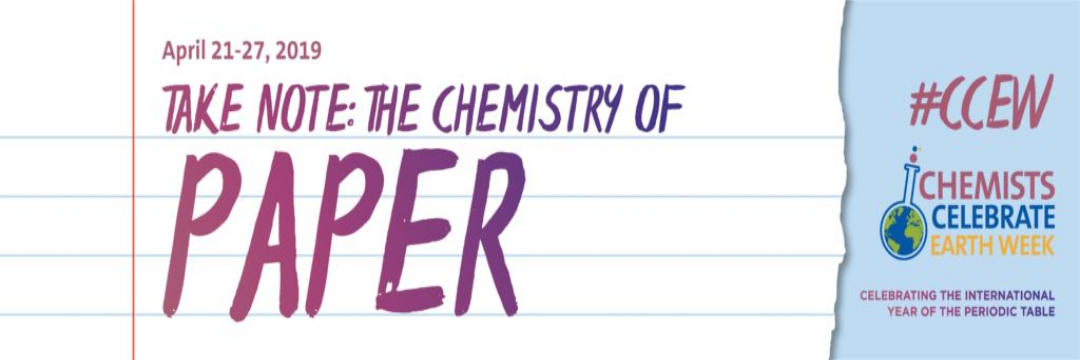
Chemists Celebrate Earth Week
a program of the American Chemical Society (ACS)
Theme: “Take Note: The Chemistry of Paper”
Chemists Celebrate Earth Week (CCEW) is a community-based program of the American Chemical Society (ACS). This annual program unites ACS local sections, student chapters, technical divisions, businesses, schools, and individuals in communicating the positive role that chemistry plays in the world. Earth Day was first officially recognized on April 22, 1970 as a way to demonstrate support for a healthy environment, raise awareness about environmental issues, and remind people that we all need to contribute to a sustainable planet. For years, chemists have been promoting a better world through recyclable plastics, cleaner-burning fuels, phosphate-free detergents, environmental monitoring, and green chemistry initiatives. The ACS joined the Earth Day celebration on April 22, 2003.
The Chemical Society of Washington (CSW) will once again participate in Chemists Celebrate Earth Week (CCEW) activities. Chemistry is all around us and is vital to our planet’s sustainability. Whether it’s used in recyclable and biodegradable materials or through the reduction of waste, chemistry is involved in ensuring that we can be eco-friendly and kind to our environment. CCEW seeks to bring international focus to environmental causes, such as clean air, water, and energy. ACS offers events, contests, and educational resources for members, chemical educators, and chemistry enthusiasts to illustrate the positive role that chemistry plays in preserving the Earth. The CCEW 2019 theme is “Take Note: The Chemistry of Paper.” This year’s theme looks at the chemistry associated with paper. Paper is one of the most amazing materials ever invented. It has been around for 2000 years and has been essential to the development of knowledge and technology around the world. The basic process of making paper hasn’t changed since its invention. Paper has been made using a variety of plants as the source of fiber. Plants are harvested to obtain fibers. These plant fibers are made from chemical compounds called cellulose and lignin. Cellulose is a long polymer made from glucose molecule subunits (or parts). Lignin is a more complex polymer that helps strengthen the plant stem and aids in the transport of water from the ground up into the plant. This and other topics are presented in this year version of Celebrating Chemistry. The electronic version of the Celebrating Chemistry newsletter for CCEW, as well as additional information about this year’s CCEW celebration, is available from the ACS website (www.acs.org/ccew).



